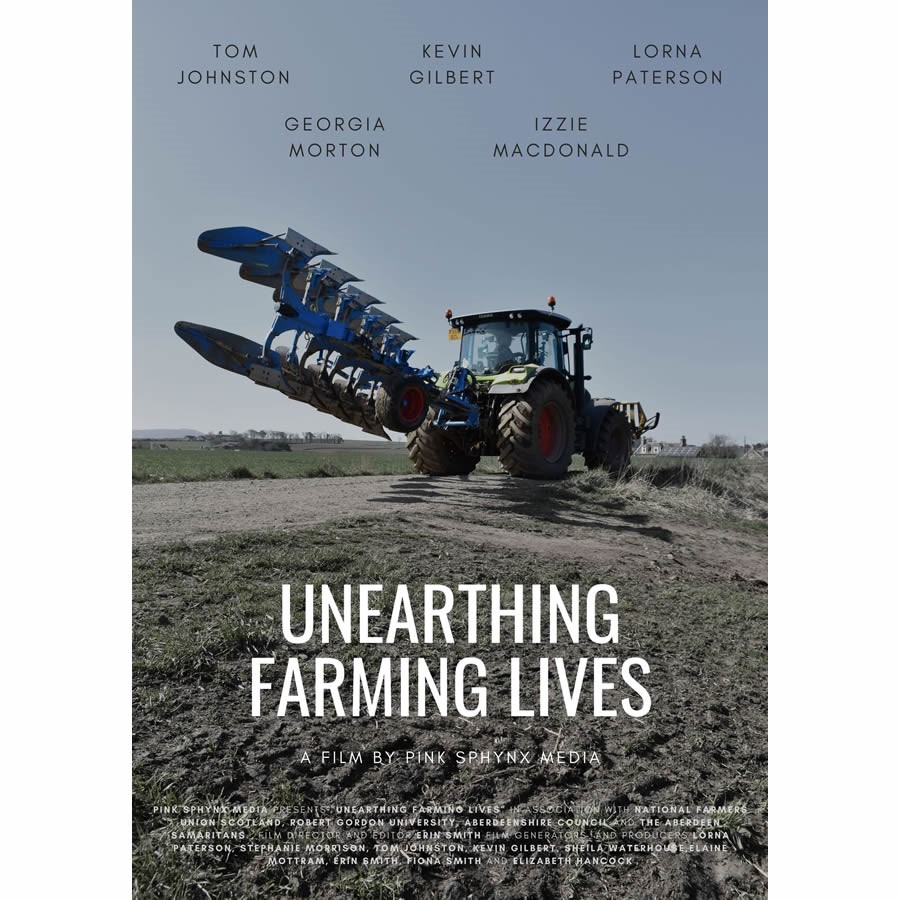



New trailer for film documenting mental health struggles in the farming community
A new film looking at mental health in the farming community, called “Unearthing Farming Lives” is currently “in the making”.The production is being directed and released by Pink Sphynx Media and is the brainchild of several organizations in the North East of Scotland: NFU Scotland, Robert Gordon’s University, Samaritans and Aberdeenshire Council. The main film will be launched and available for viewing in late May/early June, which will fit in well with the farming calendar.


The purpose for creating the film is to highlight the hidden mental health issues which exist within the farming, and wider agricultural industry, to a wide range of audiences. The target audience includes fellow farmers and their staff as well as the wider agricultural supply sector including vets, bankers, lawyers, accountants, auctioneers and those supplying the likes of agricultural machinery, animal feed, fertilizer, seed and grain. Additionally, there is a need to ensure this film, and the messages within, are heard and viewed by education establishments: universities, colleges, secondary and primary schools, as well as those involved within the political arena.
NFU Scotland’s North East Regional Chair, Alan Simpson, welcomed the launch of the trailer and said: “Many of us are well aware of fellow farmers who are silently suffering from mental health challenges. The stress and strains suffered by themselves, and sometimes their loved ones too, is unbelievable. We need to help the farming community by more outwardly promoting the message that it is brave to speak out and ask for support. There are many organizations and experts who are available to help, but the sufferer needs to find a way to summon up courage to ask for their aid. This film will help shine a light upon the mental health status of our farming industry.”
NFUS North East Regional Manager, Lorna Paterson explained: “By raising awareness and focusing upon some of the common mental health issues, and observing the participants within the film, it is hoped that audience members will quickly recognise many of the symptoms described, as well as better understand some of the causes which create these symptoms. The film will draw upon the participants’ experiences, and most importantly, help guide viewers on where and how to access help if they are aware of colleagues who are suffering, or indeed if they themselves require support. By ensuring this film reaches schools, we hope to help inform young people, and so destigmatise the negativity associated with admitting to depressive thoughts and emotions.”









